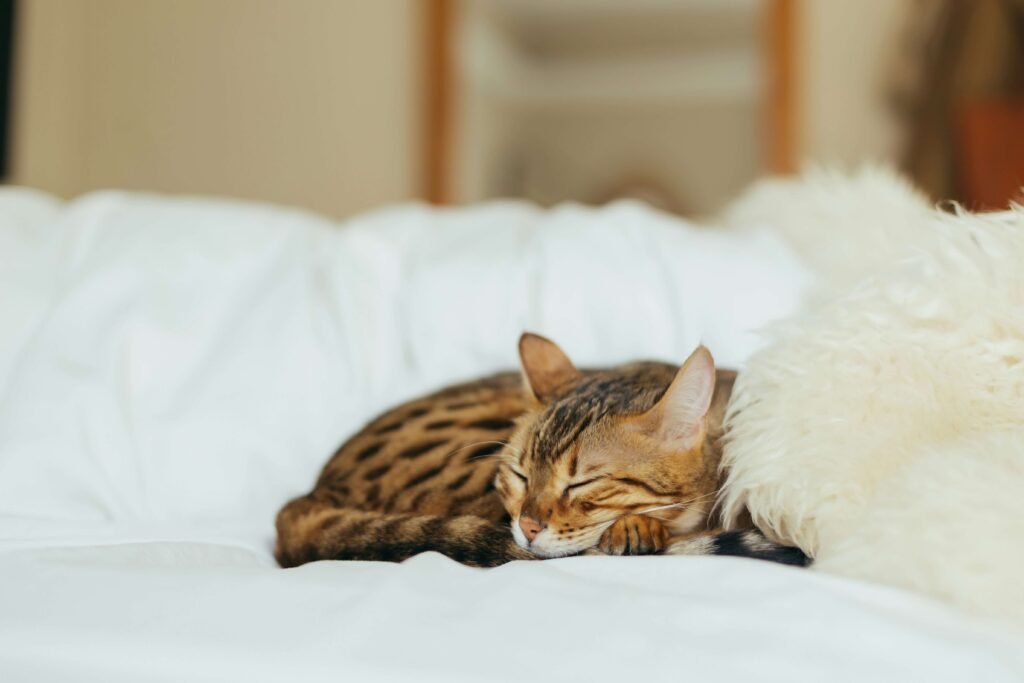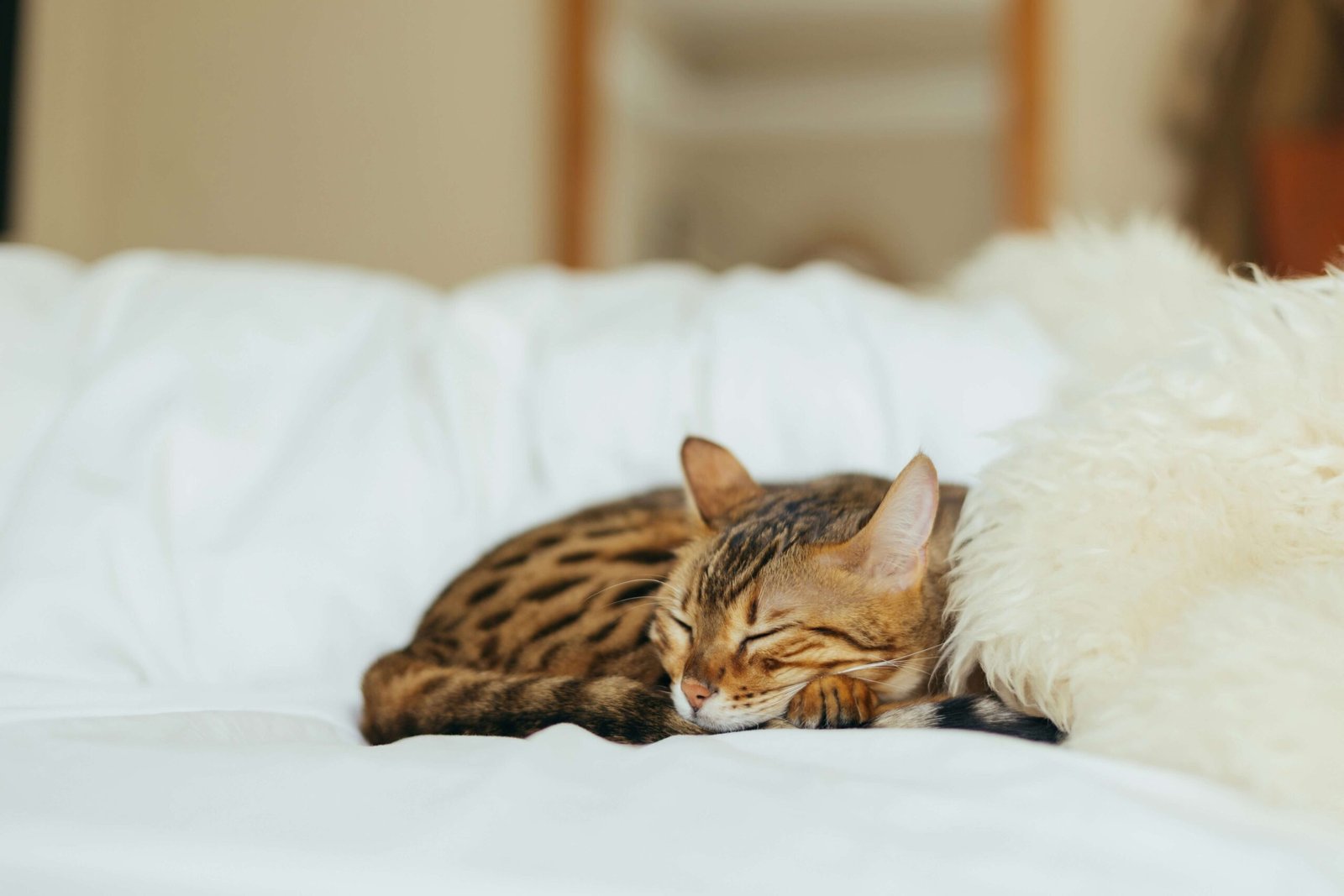Why Is My Cat Licking Everything? Understanding This Curious Behavior
Cats are known for their grooming habits, but what happens when your feline friend starts licking everything in sight—furniture, walls, clothing, or even your skin? While occasional curiosity-driven licking is normal, excessive licking can be a sign of something more significant. Whether it’s stress, boredom, or an underlying health issue, understanding why your cat is licking everything is crucial to ensuring their well-being. In this blog post, we’ll explore the possible reasons behind this behavior, offer practical solutions, and provide tips to help redirect your cat’s attention in a healthy way. By the end, you’ll have a clearer understanding of how to address this quirky habit and keep your furry companion happy and healthy.
Common Reasons Why Your Cat May Be Licking Everything
If your cat has suddenly developed a habit of licking unusual objects, there could be several explanations. Cats communicate through their behavior, and excessive licking often serves as a signal that something is amiss. Here are some common reasons to consider:
Stress or Anxiety
Cats may lick objects as a self-soothing mechanism when they’re feeling anxious or stressed.Boredom or Lack of Stimulation
A bored cat may resort to licking random items as a way to entertain themselves.Pica (Eating Non-Food Items)
This condition, where cats crave non-food items, can lead to compulsive licking of fabrics, plastic, or other materials.Nutritional Deficiencies
A lack of essential nutrients in their diet might drive them to seek out unusual textures or tastes.Medical Issues
Conditions like dental pain, gastrointestinal problems, or skin allergies can trigger excessive licking behaviors.
Understanding these potential causes is the first step toward addressing the issue and ensuring your cat feels comfortable and content.
How to Identify Underlying Health Problems
Before jumping to conclusions about your cat’s licking habits, it’s important to rule out any medical issues. Cats often use licking as a way to cope with discomfort or pain. Here are signs that may indicate a health-related problem:
Excessive Drooling
If your cat is drooling excessively while licking, it could point to dental issues or oral pain.Hair Loss or Skin Irritation
Licking combined with bald patches or irritated skin might suggest allergies or parasites.Changes in Appetite
A sudden decrease or increase in appetite alongside licking could signal digestive problems.Weight Loss
Unexplained weight loss paired with strange licking behaviors warrants a vet visit.Behavioral Changes
If your cat seems lethargic, restless, or unusually aggressive, it could be linked to an underlying illness.
Consulting your veterinarian is essential to rule out medical conditions and ensure your cat receives proper care.
Check this guide 👉Why Is My Cat Licking My Blanket? Best 7 Behavior Tips!
Check this guide 👉Why Is My Cat Itching and Licking So Much? Best 7 Tips!
Check this guide 👉Can a Dog Be Allergic to a Cat? Best 7 Expert Tips!

Behavioral Causes | Health-Related Causes |
|---|---|
Stress or anxiety | Dental pain or gum disease |
Boredom or lack of stimulation | Nutritional deficiencies |
Pica (eating non-food items) | Gastrointestinal issues |
Attention-seeking behavior | Skin allergies or infections |
Curiosity or exploration | Neurological disorders |
Tips to Redirect Your Cat’s Licking Behavior
Once you’ve identified the root cause of your cat’s excessive licking, it’s time to take action. Here are some practical tips to help redirect their behavior in a positive way:
Provide Mental Stimulation
Engage your cat with interactive toys, puzzle feeders, or activities that challenge their mind and body.Increase Playtime
Spend more quality time playing with your cat to reduce boredom and burn off excess energy.Offer Safe Chew Toys
Provide safe, cat-friendly chew toys to satisfy their need to gnaw and explore textures.Create a Calming Environment
Use pheromone diffusers or soft music to create a soothing atmosphere that reduces stress.Adjust Their Diet
Ensure your cat’s diet is balanced and includes all necessary nutrients to prevent cravings for non-food items.
By implementing these strategies, you can help curb your cat’s licking habit and encourage healthier outlets for their energy.
Preventive Measures to Avoid Excessive Licking in the Future
Prevention is always better than cure. Taking proactive steps can minimize the chances of your cat developing a habit of licking everything. Here’s what you can do:
Establish a Routine
Cats thrive on consistency, so maintaining a regular schedule for feeding, play, and rest can reduce anxiety.Limit Access to Problematic Items
Keep items like cords, fabrics, or small objects out of reach to discourage unwanted licking.Monitor Their Environment
Ensure their living space is free of stressors, such as loud noises or unfamiliar scents.Regular Vet Check-Ups
Schedule routine veterinary visits to catch any health issues early before they manifest as behavioral changes.Encourage Natural Behaviors
Provide scratching posts, climbing structures, and hiding spots to fulfill their instinctual needs.
These preventive measures will not only address current licking issues but also promote long-term well-being for your cat.
Signs Your Cat’s Licking Is Stress-Related
If your cat’s excessive licking seems to be linked to stress or anxiety, there are specific signs that can help confirm this hypothesis. Here are some indicators to look out for:
Increased Hiding
Your cat may spend more time hiding under furniture or in secluded areas when they’re feeling stressed.Changes in Vocalization
Stressed cats might meow excessively or become unusually quiet, depending on their personality.Over-Grooming Themselves
In addition to licking objects, they may obsessively groom their fur, sometimes leading to bald patches.Avoidance of Interaction
A stressed cat may avoid contact with family members or other pets in the household.Destructive Behavior
Knocking over objects or scratching furniture can be a sign of displaced anxiety.
By recognizing these signs, you can take steps to create a calmer environment and reduce your cat’s stress levels.
Safe Alternatives to Redirect Licking Behavior
Redirecting your cat’s licking behavior toward safer alternatives can help satisfy their curiosity while protecting your belongings. Here are some ideas to try:
Cat Grass
Offer cat grass as a safe and natural option for nibbling, which can also aid digestion.Soft Chew Toys
Provide soft, textured toys designed specifically for cats to chew on.Interactive Feeders
Use food puzzles or treat-dispensing toys to keep them engaged and distracted from licking objects.Scratching Posts with Texture
Some scratching posts come with varied textures that mimic the sensation of licking unusual surfaces.Frozen Treats
Freeze small portions of wet food or broth in ice cube trays to give them something fun and edible to lick.
These alternatives not only redirect their behavior but also provide mental and physical stimulation.
How to Enrich Your Cat’s Environment to Reduce Licking
Environmental enrichment plays a crucial role in reducing unwanted behaviors like excessive licking. By creating a stimulating and comfortable space, you can help your cat feel more content. Here are some ways to enrich their environment:
Vertical Spaces
Install cat shelves or tall perches where they can climb and observe their surroundings from above.Window Perches
Place a cozy perch near a window so they can watch birds, squirrels, or outdoor activity.Rotating Toys
Regularly switch out their toys to keep things fresh and exciting, preventing boredom.Scent Enrichment
Introduce cat-safe herbs like catnip or silver vine to stimulate their senses and encourage play.Companion Playtime
Engage in daily interactive play sessions using wand toys or laser pointers to strengthen your bond.
By enriching your cat’s environment, you’ll not only curb their licking habit but also enhance their overall quality of life.
Frequently Asked Questions About Cats Licking Everything
Is it normal for cats to lick objects occasionally?
Yes, occasional licking is normal, but excessive licking may indicate an issue that needs attention.
Can I stop my cat from licking by scolding them?
Scolding can increase stress and worsen the behavior; instead, focus on positive reinforcement.
Should I be worried if my cat licks fabric?
Fabric licking can sometimes indicate pica or anxiety, so monitor closely and consult a vet if it persists.
How can I tell if my cat’s licking is due to stress?
Look for additional signs of stress, such as hiding, aggression, or changes in appetite.
What should I do if my cat’s licking doesn’t improve?
Consult a veterinarian or animal behaviorist for professional guidance tailored to your cat’s needs.
Final Thoughts: Addressing Your Cat’s Licking Behavior with Patience and Care
Understanding why your cat is licking everything requires patience, observation, and a willingness to address both behavioral and health-related factors. Whether it’s stress, boredom, or an underlying medical condition, identifying the root cause is key to finding a solution. By providing enrichment, creating a calm environment, and seeking professional advice when needed, you can help your cat overcome this habit and thrive in a happy, healthy home. Remember, every cat is unique, and with love and dedication, you can support your furry friend through this curious phase.
How to Taper Off Prednisone for Cats: Best 7 Expert Tips! – Safely reduce prednisone with vet guidance. Learn now!
How to Taper Off Prednisone Schedule for Dogs: Best 7 Tips! – Learn the safe way to reduce prednisone, recognize withdrawal signs, and keep your dog healthy during the process.
Can a Cat Scratch Give You Rabies? Best 7 Expert Tips! – Learn how rabies spreads, assess risks from cat scratches, and know when to seek medical help. Stay safe!
Can a Dog Scratch Give You Rabies? Best 7 Expert Tips! – Learn the risks, symptoms, and steps to take if scratched by a dog. Stay informed and protect yourself from rabies exposure.





